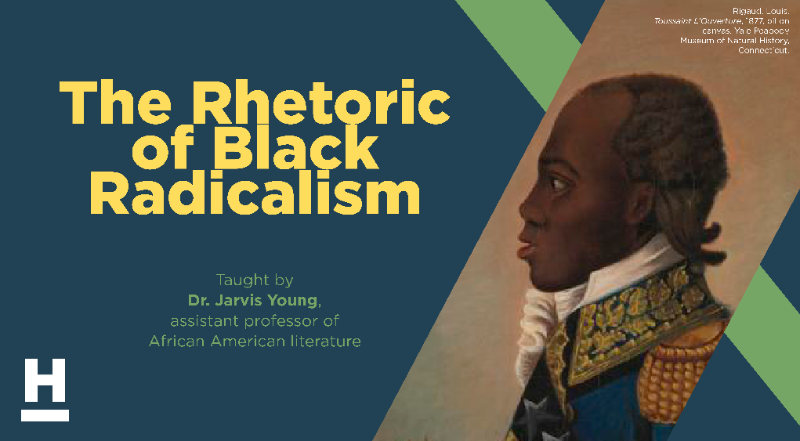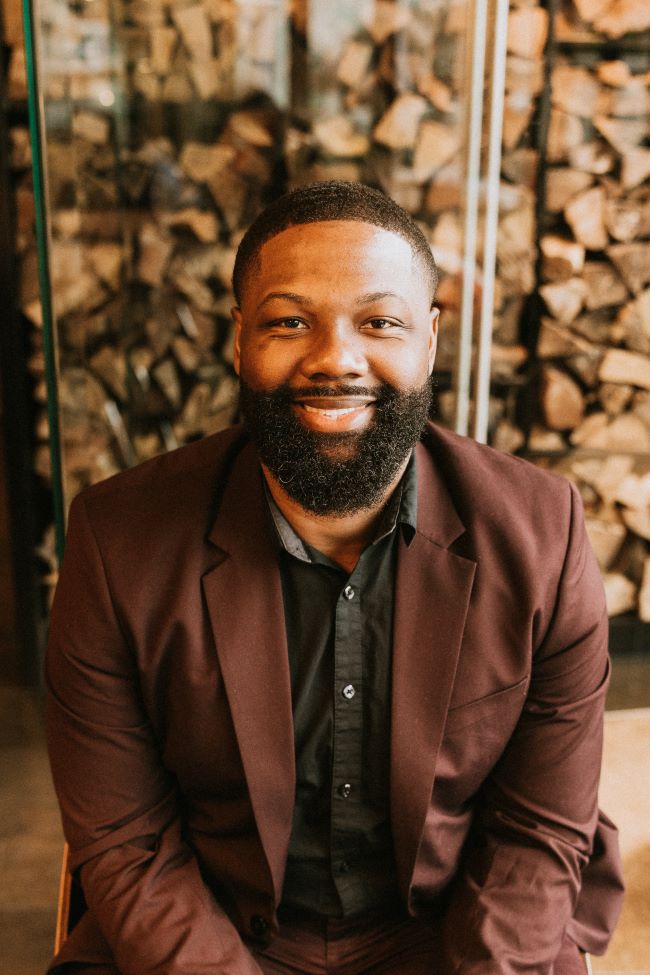The Rhetoric of Black Radicalism

The Rhetoric of Black Radicalism
HNRS 301H1-002
Jarvis Young
Spring 2025
T 11:00 a.m. - 12:15 p.m.
GEAR 129
This course will focus on the history of African and black resistance to oppression and injustice from the early republic to the present through different forms of radical speech acts. The main question(s) that we will explore are as follows: how do radical speech acts shape and inform our understanding of social and political issues, including our very conception of the United States as a nation and ourselves as a people? The eminent figures of African descent featured in this seminar each were known for their dynamic presence, stirring crowds with their essays and narratives, charming audiences with their performances, and inspiring congregations with their sermons. People of African descent, in Britian, the U.S, and the Caribbean, wrote, published, and read through eras of enslavement and segregation, at times defying legal restrictions, economic obstacles, and violence. Writers and activists from Toussaint Louverture, Quobna Ottobah Cugoano, David Walker and Maria Stewart, to contemporary activists such as Ta-Nehisi Coates and Alicia Garza were notable for developing Afro-Caribbean, Afro-British, and African American literary cultures, identities, and movements in print. We will study how these activists' forged communities and identities through print, and how their radical slogans, such as "Black Lives Matter," became movements.
About Jarvis Young
 Dr. Jarvis Young currently serves a double appointment position as an Assistant Professor of African
American Literature in the Program of African and African American Studies (AAST)
and Department of English at the University of Arkansas. His research interests center
on African American literature, and Afro-Diasporic writing in the late eighteenth
and early nineteenth centuries. His current book project, "Freethinking and Divine
Revelation: Toward a New Literary History of Early Afro-Diasporic Writing" offers
a crucial corrective to early Afro-diasporic literary history’s tendency of viewing
early Black writing as extensions of Protestant Christianity. Dr. Young seeks to rupture
histories that overlook a self-conscious literary tradition of freethinking that bore
out of the early writings of Lemuel Haynes, Quobna Ottobah Cugoano, and Maria Stewart.
His work underscores freethinking as a mental exercise that displays the intellectual
abilities of people of African descent; in that their thoughts may be commensurate
to that which is divine. Consequently, he argues that a distinct point of origin for
an Afro-diasporic literary tradition is “free Black thought;” a polemical and performative
act of resistance that writers of African descent engaged in within their seemingly
religious writings. This project was influenced in part by a 2019 exhibition that
he co-curated with colleagues at Johns Hopkins University, called “Movements: Black
Print Culture in the United States, 1773-1940,” which was put on display in the Milton
S. Eisenhower Library. A native of Champaign, Illinois, he received his bachelor’s
as well as his master’s in English from the University of Illinois at Urbana-Champaign,
in 2014 and in 2017, as well as a second master’s degree in English in 2021 from Johns
Hopkins.
Dr. Jarvis Young currently serves a double appointment position as an Assistant Professor of African
American Literature in the Program of African and African American Studies (AAST)
and Department of English at the University of Arkansas. His research interests center
on African American literature, and Afro-Diasporic writing in the late eighteenth
and early nineteenth centuries. His current book project, "Freethinking and Divine
Revelation: Toward a New Literary History of Early Afro-Diasporic Writing" offers
a crucial corrective to early Afro-diasporic literary history’s tendency of viewing
early Black writing as extensions of Protestant Christianity. Dr. Young seeks to rupture
histories that overlook a self-conscious literary tradition of freethinking that bore
out of the early writings of Lemuel Haynes, Quobna Ottobah Cugoano, and Maria Stewart.
His work underscores freethinking as a mental exercise that displays the intellectual
abilities of people of African descent; in that their thoughts may be commensurate
to that which is divine. Consequently, he argues that a distinct point of origin for
an Afro-diasporic literary tradition is “free Black thought;” a polemical and performative
act of resistance that writers of African descent engaged in within their seemingly
religious writings. This project was influenced in part by a 2019 exhibition that
he co-curated with colleagues at Johns Hopkins University, called “Movements: Black
Print Culture in the United States, 1773-1940,” which was put on display in the Milton
S. Eisenhower Library. A native of Champaign, Illinois, he received his bachelor’s
as well as his master’s in English from the University of Illinois at Urbana-Champaign,
in 2014 and in 2017, as well as a second master’s degree in English in 2021 from Johns
Hopkins.